ABOUT DEPARTMENT
The Master of Computer Applications Program was started in the year 2008. The Department of MCA has well qualified and experienced faculty and excellent computing facilities. The department focuses more on training the students in emerging areas like Machine Leaning ,Internet of Things, Ethical Hacking ,Cyber Security, Image Processing and Computer Vision, Android Mobile Applications, Development, PHP Programming, HTML5,PERL and Python Scripting etc., with an objective of providing better career opportunities to the students and make them industry ready professionals. The Department of MCA is taking leading role in making the students Microsoft certified. Microsoft Cloud Competency Centre at SRK Institute of Technology is actively involved in Microsoft Azure Applications Development.
The MCA Department labs are facilitated with the state -of- art technologies like IBM Blade Server, Microsoft Campus agreement volume license and latest application software. The department is facilitating TCS ION Test Center and Pearson VUE Test Center.
Doing real time and in-house projects enables our students to develop technical skills in making them industry ready and attaining jobs. We believe that technical exposure expands when we frame the objectives of projects by observing the needs of the society .Understanding this fact, MCA faculty encourage the innovative ideas from the students for their final year projects work and their future career.


Faculty Name :Ms. M. Anitha

Faculty Name :Mr.Ch. Satyanarayana Reddy

Faculty Name :Mr. Y. Naga Malleswara Rao

Faculty Name :Mr. E. Nagaraju
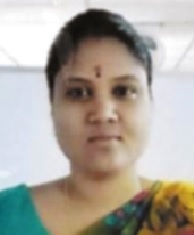
Faculty Name :Ms.K. Pavani

Faculty Name :Ms. K. Baby Ramya

Faculty Name :Mr. K. Hareesh

Faculty Name :Ms. M.Priyanka

Faculty Name :Mr. G. Rejeswara Rao
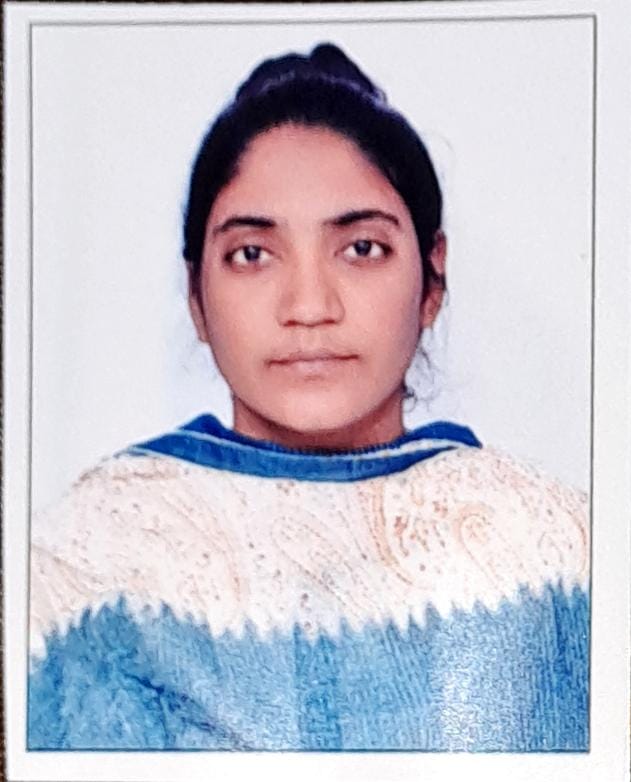
Faculty Name :Ms. K. Krupa Sagari
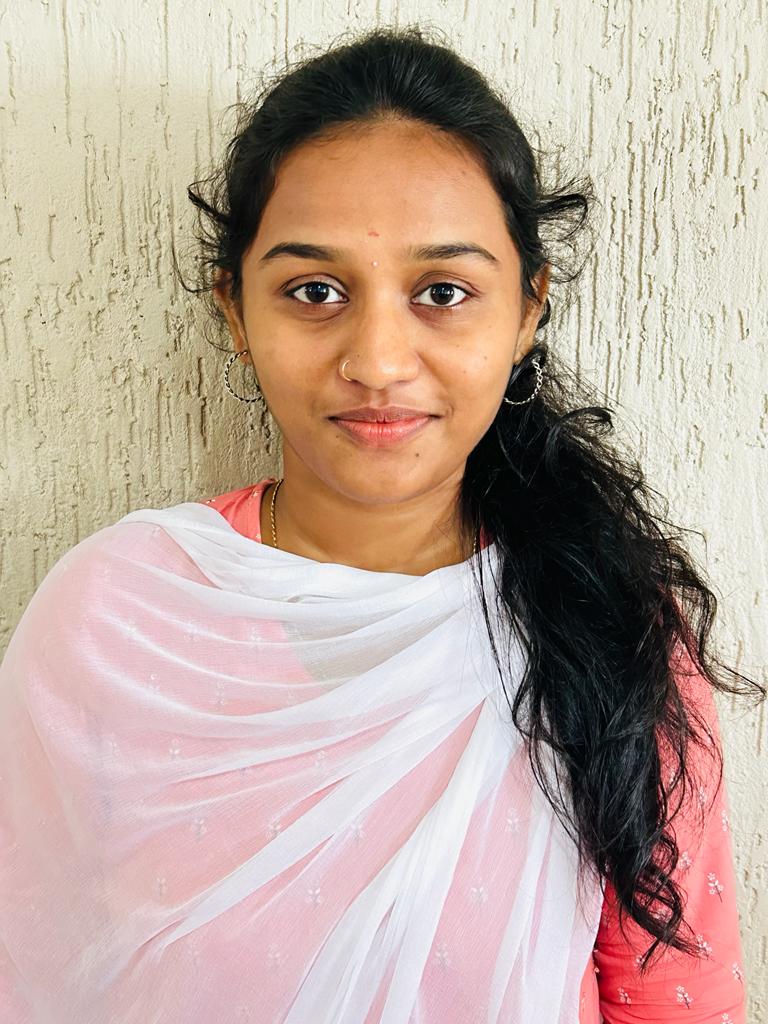
Faculty Name :Ms. Y. Maneesha Sravani
DEPARTMENT VISION
PROGRAM EDUCATIONAL OBJECTIVES (PEOs)
PEO 1:
Have core competency to take up the positions as System Administrators, Analysts, Application Architects, Designers and Engineers.
PEO 2:
Apply multidisciplinary knowledge to develop applications to meet the requirements of the society.
PEO 3:
Inculcate adaptability to the technology changes through self learning to inculcating adaptability change.
PEO 4:
Conduct themselves in a responsible, professional, and ethical manner.
PEO 5: LIFE LONG LEARNING /ETHICS:
To promote student awareness, delivers values of the life-long learning and to develop the students as Professional with ethics and be responsible citizens to promote Industrial progress growth and societal transformation
OPERATING SYSTEMS AND LINUX LAB
This lab is a part of I MCA 1ST semester for MCA students .This Course will enable students to implement CPU scheduling algorithms, Disk scheduling algorithms, Execute different types of Linux commands and Write shell scripts .
Course Outcomes (COs):
At the end of the course, student will be able to
> Implement various CPU scheduling algorithms and compare results .
> Implement various disk scheduling algorithms and compare results .
> Implement page replace algorithms.
> Implement various memory management techniques.
> Execute basic Linux commands .
DATA STRUCTURES LAB
This lab is a part of I MCA I semester for MCA students . The Data Structure lab class intends to provide the students a practical knowledge of data structures so that the abstractions discussed in lecture classes are made concerete.
Course Outcomes (COs):
At the end of the course, student will be able to
> Develop skills to design and analyze simple linear and non linear data structures.
> It strengthen the ability to the students to identify and apply the suitable data structure for the given real world problem.
> Implement stacks, queues, lists, sets, trees, and algorithms such as searching, and sorting.
> Become a proficient programmer, regardless of their chosen field.
DATA BASE MANAGEMENT LAB
This lab is a part of I MCA II semester for MCA students. A database management system (DBMS) is a collection of programs that enables users to create and maintain a database. The DBMS is a general-purpose software system that facilitates the processes of defining, constructing, manipulating, and sharing databases among various users and applications.
Course Outcomes (COs):
At the end of the course, student will be able to
> Identify, analyze and define database objects, enforce integrity constraints on a database using RDBMS.
> Design and build simple database systems and relate the concept of transaction,concurrency control and recovery in database.
> Implement stacks, queues, lists, sets, trees, and algorithms such as searching, and sorting.
> Develop application using tuple and domain relation expression from queries as well as develop an application to interact with databases, relational algebra expression.

SOFTWARE ENGINEERING AND DESIGN PATTERNS LAB
This lab is a part of I MCA II semester for MCA students. The course is divided in 6 small components that will be performed during the different lab sessions and Implementation will take place both in Java and C++ .
Course Outcomes (COs):
At the end of the course, student will be able to
> To understand the software engineering methodologies involved in the phases for project development.
> To gain knowledge about open source tools used for implementing software engineering methods.
> Simplify the coding process, enhance code maintainability, and promote code reuse.
> Help developers write code that is more efficient, scalable, and adaptable.
PYTHON LAB
This lab is a part of I MCA II semester for MCA students. This Python lab is an overview of the Python programming language for learners without prior programming knowledge.
Course Outcomes (COs):
At the end of the course, student will be able to
> Demonstrate about Python data structures like Lists, Tuples, Sets and dictionaries.
> Understand about Functions, Modules and Regular Expressions in Python Programming.
> Get in-depth knowledge in data analytics, machine learning, data visualization, web scraping, and natural language processing.
> Develop, test and maintain high-quality software using Python programming language.

MACHINE LEARNING LAB
This lab is a part of II MCA I semester for MCA students. The ML Lab is a centralized hub for data science teams to seamlessly build, deploy, and operate machine learning solutions at scale. It is designed to cover the end-to-end machine learning lifecycle from data processing and experimentation to model training and deployment.
Course Outcomes (COs):
At the end of the course, student will be able to
> To cover the end-to-end machine learning lifecycle from data processing and experimentation to model training and deployment.
> Learn from environments and make their own decisions.
> Recognize a wide variety of types of patterns in text, not just the meaning or intent of the text.
> Implement suitable ML algorithm for Dataset.
COMPUTER NETWORKS LAB
This lab is a part of II MCA I semester for MCA students. This CN lab is dedicated for students to work on practical experiments, projects and research work related to courses such as Computer Networks, Wireless Networks, Mobile Communications, Software-Defined Networking, Internet of Things, Future Networks (5G) and Cloud Computing
Course Outcomes (COs):
At the end of the course, student will be able to
> Learn the major software and hardware technologies used on computer networks.
> Diagnose various protocol message details like TCP/UDP using Wireshark.
> Study of different types of Network cables and Practically implement the cross-wired cable and straight through cable using clamping tool.
> Learn to communicate between two desktop computers.
WEB TECHNOLOGIES LAB
This lab is a part of II MCA I semester for MCA students. This WT lab is to develop an ability to design and implement static and dynamic website.
Course Outcomes (COs):
At the end of the course, student will be able to
> Develop an ability to design and implement static and dynamic website.
> Choose best technologies for solving web client/server problems.
> Create conforming web pages .
> Use JavaScript for dynamic effects .
> To prepare PHP scripts .
> Use JavaScript & PHP to validate form input entry .
> Understand, analyze and create XML and JavaScript.

JAVA PROGRAMMING LAB
This lab is a part of I MCA 1ST semester for MCA students .Java Programming lab starts with the basic concepts of Java like data types and covers object oriented programming concepts like Inheritance, Abstraction, Encapsulation, Polymorphism and advanced concepts like Exception Handling, Threads, Packages, Applets and Event Handling.
Course Outcomes (COs):
At the end of the course, student will be able to
> Evaluate default value of all primitive data type, Operations, Expressions, Control-flow, and Strings .
> Determine Class, Objects, Methods, Inheritance, Exception, Runtime Polymorphism, User defined Exception handling mechanism .
> Illustrating simple inheritance, multi-level inheritance, Exception handling mechanism.
> Construct Threads, Event Handling, implement packages, developing applets.

Achievements
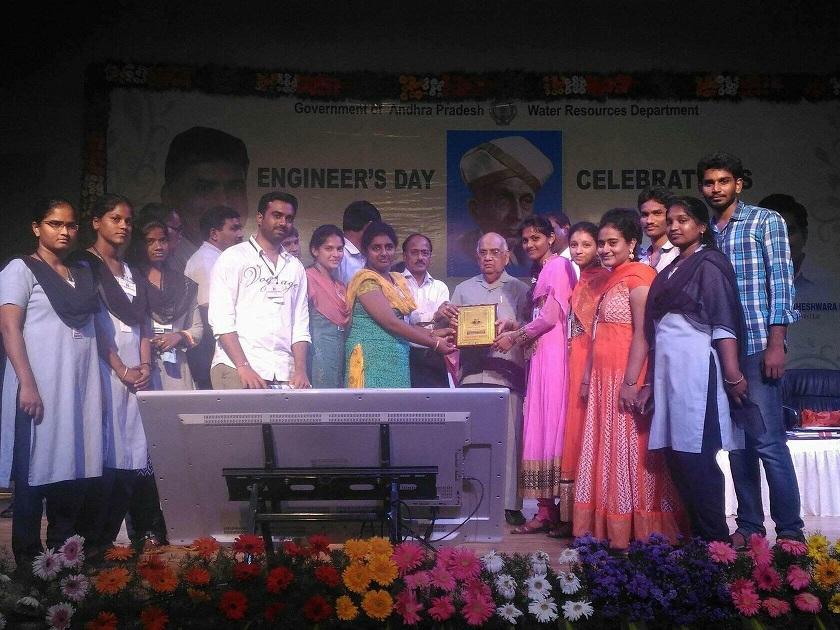
Department Activities
Civil Engineering Department has been conducting different activities for faculty and students such As Faculty Development Programs, Workshops, Seminars, Guest Lectures and Training programs on new technologies for the benefit of Civil Engineering students. Department also encourages the students to participate in different events such as paper presentations, poster presentations, model making, quizzes and cultural activities conducted by other colleges. Department of Civil Engineering also arranges Industrial Visits and field trips. Department made arrangements to send the students for internship programs to acquire Practical knowledge which is more useful for their carrier.
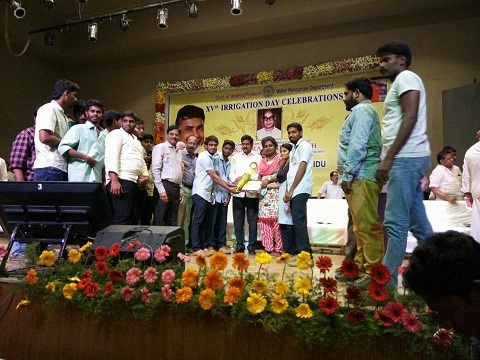
Projects
Get the latest SRKIT news and information about upcoming events on campus.

